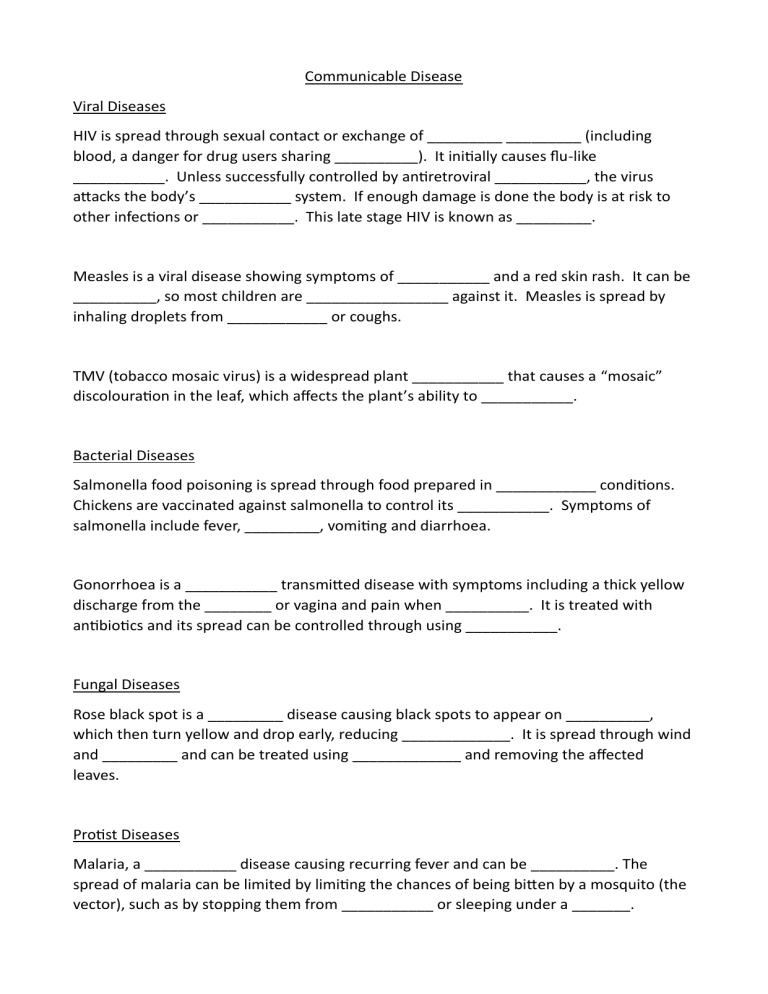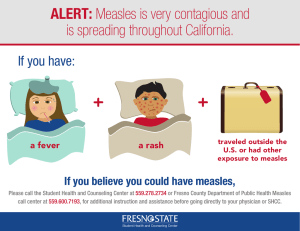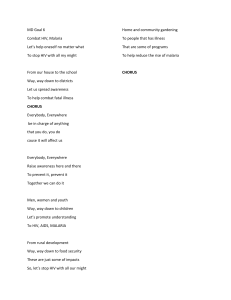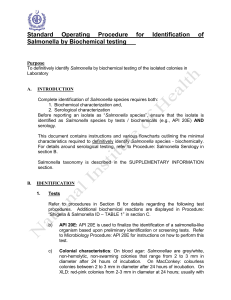
Communicable Disease Viral Diseases HIV is spread through sexual contact or exchange of _________ _________ (including blood, a danger for drug users sharing __________). It initially causes flu-like ___________. Unless successfully controlled by antiretroviral ___________, the virus attacks the body’s ___________ system. If enough damage is done the body is at risk to other infections or ___________. This late stage HIV is known as _________. Measles is a viral disease showing symptoms of ___________ and a red skin rash. It can be __________, so most children are _________________ against it. Measles is spread by inhaling droplets from ____________ or coughs. TMV (tobacco mosaic virus) is a widespread plant ___________ that causes a “mosaic” discolouration in the leaf, which affects the plant’s ability to ___________. Bacterial Diseases Salmonella food poisoning is spread through food prepared in ____________ conditions. Chickens are vaccinated against salmonella to control its ___________. Symptoms of salmonella include fever, _________, vomiting and diarrhoea. Gonorrhoea is a ___________ transmitted disease with symptoms including a thick yellow discharge from the ________ or vagina and pain when __________. It is treated with antibiotics and its spread can be controlled through using ___________. Fungal Diseases Rose black spot is a _________ disease causing black spots to appear on __________, which then turn yellow and drop early, reducing _____________. It is spread through wind and _________ and can be treated using _____________ and removing the affected leaves. Protist Diseases Malaria, a ___________ disease causing recurring fever and can be __________. The spread of malaria can be limited by limiting the chances of being bitten by a mosquito (the vector), such as by stopping them from ___________ or sleeping under a _______.






